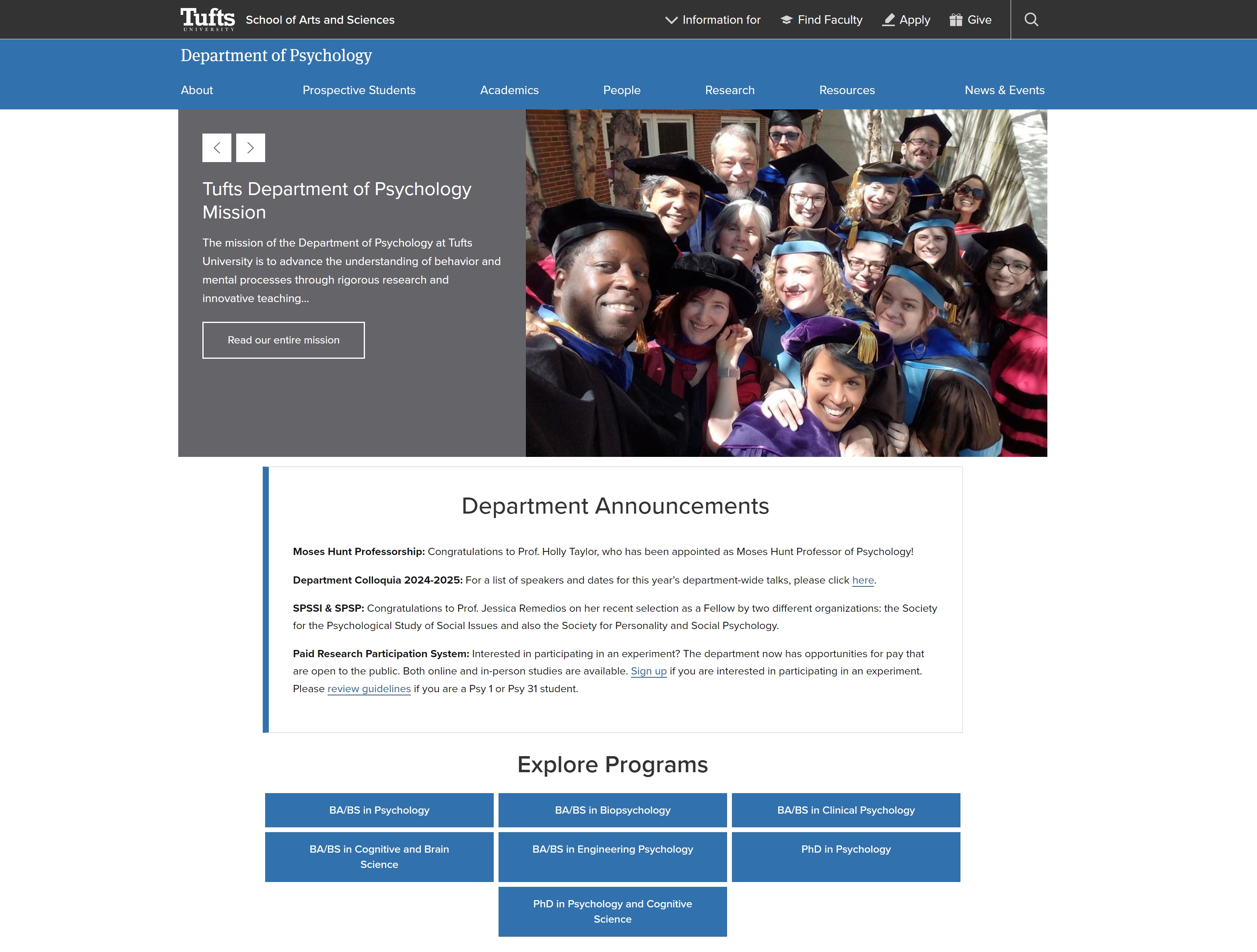
Tufts University Department of Psychology
The Department of Psychology at Tufts University conducts cutting-edge research aimed at understanding the causes and consequences of mental processes and behavior. Our work addresses social, cognitive, and neural levels of analysis. We are innovative and interdisciplinary in our approach and emphasize understanding phenomena that have a direct impact on society. Scientists at all levels - faculty, postdoctoral trainees, and graduate and undergraduate students - engage in collaborative scholarship and critical thinking in the classroom and in the laboratory. This synthesis, between research and teaching, positions us to ask and answer fundamental questions while also enriching our students' understanding of psychology.

Podrobný úvod
At Tufts, we are distinctive in supervising more undergraduate majors than any other department on campus, while simultaneously maintaining a vibrant PhD program and one of the university's highest research profiles. Our focus is strongly experimental, with researchers at the forefront of neuroscience, cognition and perception, affective science, experimental psychopathology, developmental psychology, and social psychology. By bridging across these different areas of Psychology, we create a more complete picture of the how and why of behavior, from the microstructure of perception and cognition to the robustness of social behavior. In our undergraduate and graduate programs, we are committed to involving our students in collaborative scholarship at every level, both inside and outside the classroom. Our department prepares undergraduate and graduate students to ask science-based questions about the origins and mechanisms of human and animal behavior using discovery-oriented research and teaching. We are student-centered, striving to combine excellence in teaching, research, advising, and service.
VíceUniverzita

Dartmouth University Department of Psychology
Psychological science is traditionally defined as the study of behavior; neuroscience as the study of the nervous system. As a Department of Psychological and Brain Sciences we are focused on understanding mind and behavior in terms of underlying psychological processes that have their genesis in neural activity in the brain.

Department of Psychological & Brain Sciences - Columbian College of Arts & Sciences - The George Washington University
The Department of Psychological and Brain Sciences at The George Washington University offers a variety of undergraduate and doctoral degree programs, encouraging a collaborative learning environment with opportunities for mentorship, research, and advancement. Leveraging its Washington, D.C. location, students benefit from proximity to major research institutions and health centers.

King's College London Department of Psychology
For over 60 years, the Department of Psychology has been at the forefront of research into clinical practice. Its research interests span a wide range of mental health disorders and physical health problems, including anxiety disorders, trauma, somatoform disorders, pain, psychosis, depression, antisocial personality, disorders in childhood and adolescence, emotion and personality, and neurodegeneration.